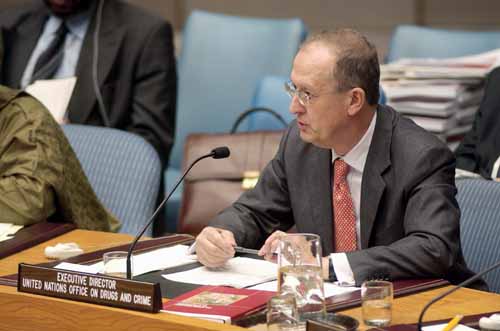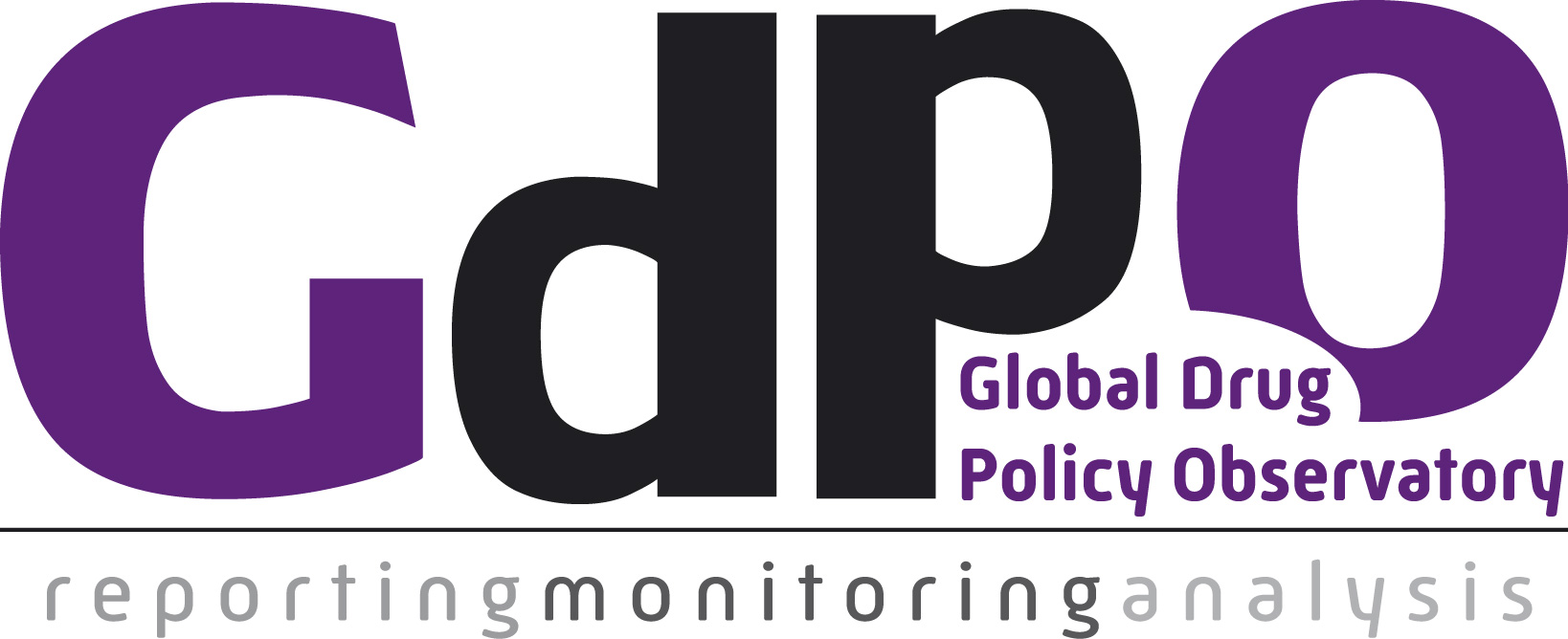Branwen Lloyd*
The 2020 United States presidential election—with early voting underway and Election Day on November 3—is already like no other in history. In a pivotal year the presidential campaign has been repeatedly shaken by seismic events: a devastating pandemic, George Floyd’s killing by police officers, and subsequent protests, President Donald Trump contracting COVID-19, and Trump himself claiming that the vote will be fraudulent.
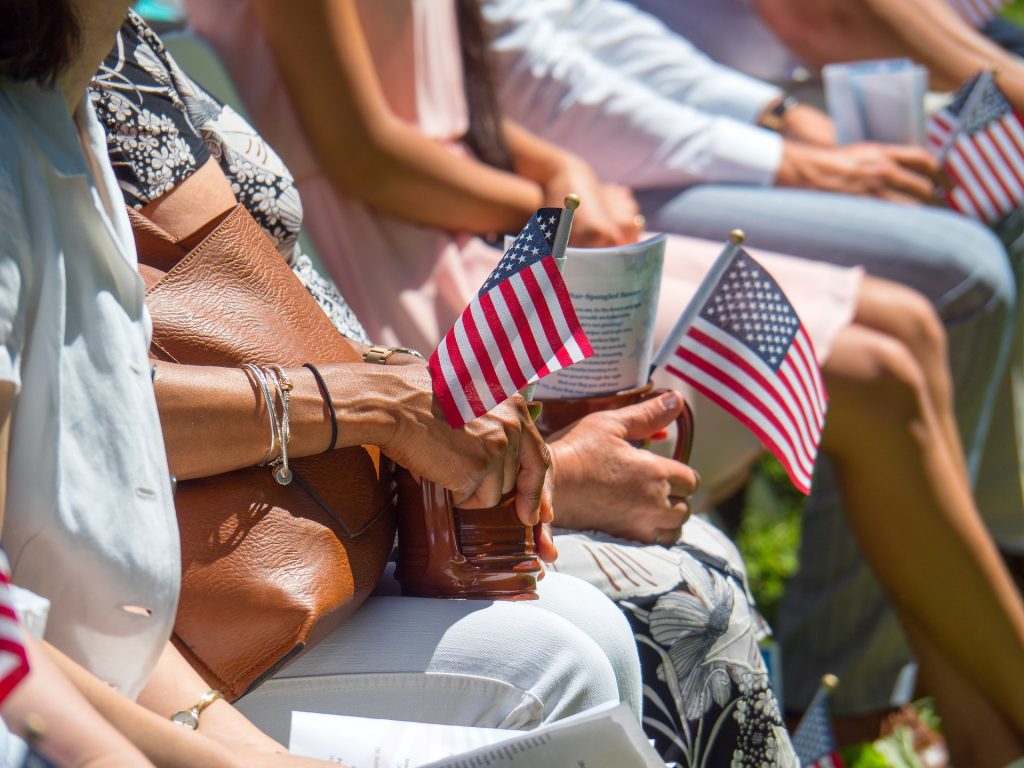
With the election likely being decided on the merits of each candidate’s “character” an analysis of their positions on drug policy is a fascinating measure. With so many other high-profile issues competing for attention – COVID-19, the economy, Supreme Court nominations – drug policy will not be a deciding factor in the 2020 election. Indeed, it seldom is in any Presidential contest. However, the influence of the winner on Health Care and Criminal Justice systems will directly affect the nation’s drugs policy and an analysis of the candidates’ evolving positions on the issues reveals some important differences between the candidates.
‘How it started. How it’s going’ is a trend currently sweeping Twitter and sees Twitter users sharing experiences about their lives, careers and relationships. If we look at the stances of Trump and Biden on drug policy in the same context we see fascinating diametrically opposite movements. Joe Biden – often considered to have been one of the main “architects” of the 1980 and 1990 “War on Drugs,” now has a far more liberal attitude towards U.S. drug problems while Donald Trump’s track-record during office offers little hope for radical changes in the status quo.
Background
Before COVID-19, the U.S. was already battling an overdose crisis of unprecedented proportions, caused by prescription analgesics and illicitly manufactured fentanyls, heroin, cocaine, methamphetamine (alone or in combination). The Centres for Disease Control reports that from 1999 to 2018, over 750,000 people died from a drug overdose with the number increasing each year. Then in 2018 Trump claimed credit for the first drop in 25 years, a decrease of 5% in 2017-2018. Deaths totalled 68,557 – the dip mainly due to a reduction in deaths from prescription opioid painkillers. But it didn’t mark a true turning point in the trajectory of this crisis; the next year 70,000 people died of drug overdoses and 72,000 in 2019, a record high. Provisional data indicate that drug overdose deaths will increase again in 2020, a situation further complicated by the pandemic.
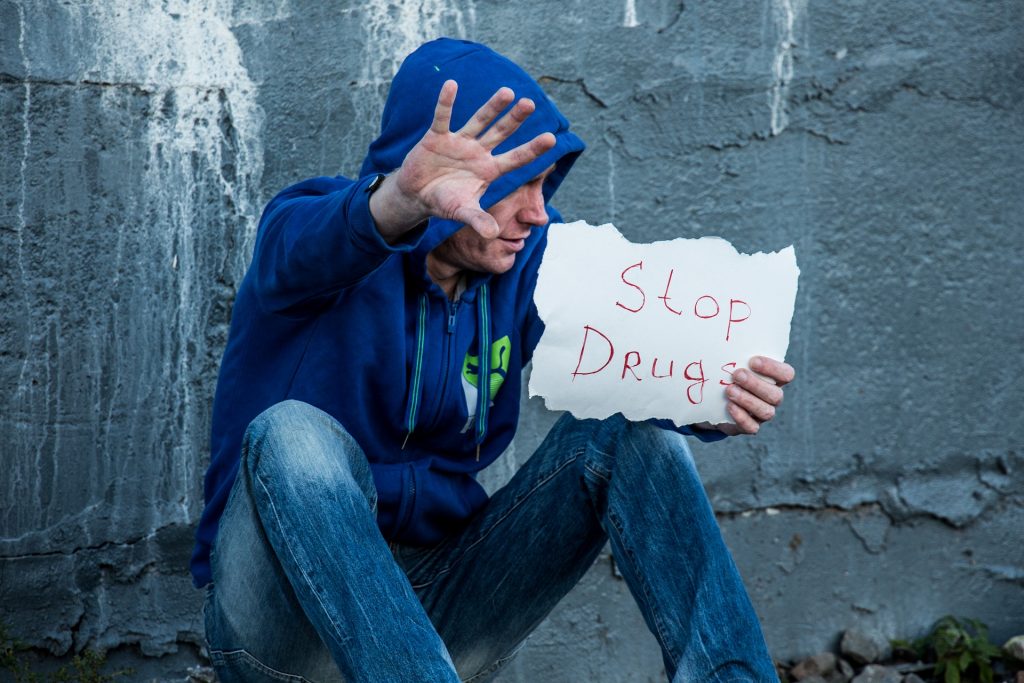
Other issues that had previously dominated the domestic drug policy landscape, such as cannabis legalization, have been eclipsed by recent developments and more pressing issues. Once a ‘third-rail issue’, views have changed in Washington, mainly due to the wider acceptance of cannabis use across the population. More Americans now support the legalization of marijuana, whether for recreational or medicinal purposes, than oppose it. A 2019 Gallup poll indicated that Democrats and Independents overwhelmingly supported legalization and even the majority of Republican voters were for it – albeit by much close margins. The MORE Act (Marijuana Opportunity Reinvestment and Expungement Act) was expected to have been passed by the House in late September 2020. It would have removed federal penalties for marijuana related crimes by deleting cannabis from the Controlled Substances Act and erase some criminal records. However, the motion was delayed until after the election (so that the House could concentrate on coronavirus relief legislation).
So where do the developments in the United States sit within the global drug policy debate? The United Nations Commission on Narcotic Drugs (CND) has also decided to delay until December 2020 a vote on the potential global rescheduling of cannabis for medical purposes, recommended by the World Health Organization (WHO). James Walsh, leader of the US delegation to the CND expressed regret at the U.N. delay, but he also noted that the US delegation’s concern is on what it considers more pressing drug control issues such as “continue to combat the global opioid crisis and synthetic drug threat”.
Trump’s record on drugs
Back in 1990 at a luncheon held by the Miami Herald, Trump called the United States’ drug enforcement policy a ‘joke’ and was quoted as saying “We’re losing badly the war on drugs. You have to legalize drugs to win that war. You have to take the profit away from these drug czars.” He advocated using tax revenues from legalized drug trade to educate the public on the dangers of drugs. However as a candidate for the White House in 2016 he did a 180-degree flip, saying cannabis regulation was “bad” and that decisions should be left to each state to decide its marijuana policy. One of his first appointments as President was to bring in Jeff Sessions as Attorney General, one of many in Trump’s administration who have openly opposed pro-marijuana legislation. In a leaked recording from 2018, Trump was heard to say marijuana makes people “lose IQ points” and at an opioid summit that same year at the White House, Trump advocated the death penalty for drug dealers, equating the provision of lethal drugs with murder. He was quoted as saying “Some countries have a very, very tough penalty — the ultimate penalty — and by the way, they have much less of a drug problem than we do”.
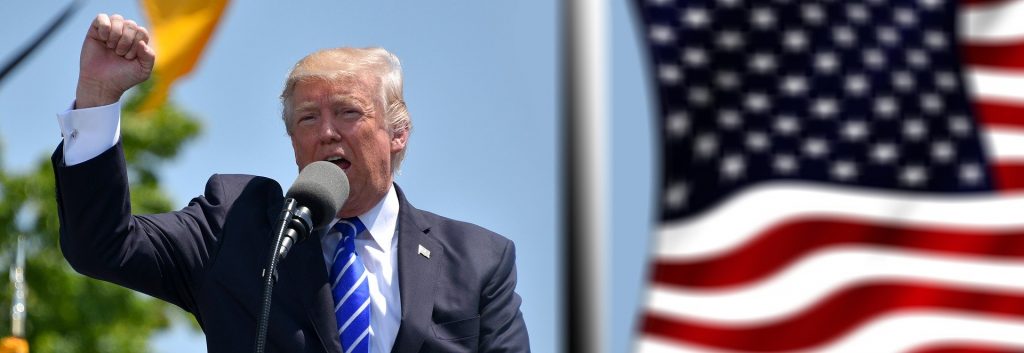
The Trump administration’s lack of focus and failure to act decisively in response to the nation’s drug crisis have frustrated progress over the last 4 years. In 2019 government auditors reported that the Office of National Drug Control Policy (ONDCP), tasked with leading efforts to tackle illegal drug use, has not delivered on a central mission, which was to produce an annual strategy to guide federal agencies and to allocate billions of federal dollars. The ONDCP failed to produce reports in 2017 or 2018 and the first report produced in 2019 lacked the necessary depth and analysis required to be effective – it was only 23 pages long. In February 2020 just prior to the widening COVID-19 pandemic the office published its 2020 Drug Control Strategy. Despite claiming that “The President’s top priority remains, as he articulated in his first strategy, to address, head on, the current opioid crisis and reduce the number of Americans dying from these dangerous drugs”, the document lacked useful information and planning and failed to provide detailed metrics and objectives, as it was legally required to do.
The ONDCP claims achievements in expanding availability of the overdose reversal medication, naloxone; increasing anti-opioid misuse education campaigns for young people; and securing historic funding levels for anti-trafficking efforts and addiction recovery. However data from ambulance teams, hospitals and police shows the number of suspected overdoses has jumped nationally during the pandemic (18 percent in March, 29 percent in April and 42 percent in May), and ONDCP has be woefully slow in responding.
In June 2020 the ONDCP launched the Rural Community Tool Box which is aimed at helping patients access treatment remotely. The Trump administration has designated $425 million in emergency funding for mental health and substance use treatment, but critics say it is not nearly enough to keep afloat treatment programs, recovery centres and needle-exchange programmes. Social isolation, economic hardship and new suppliers and substances have compounded the threats to drug users during the pandemic. So far, the Trump administration has made little real progress in addressing these pressing issues and shows little sign of doing so in the future. The Trump 2020 website doesn’t include any campaign promises. There is some mention of the opioid crisis on the ‘Promises Kept’ section but no indication of the direction of any future drugs policy– or any policies for that matter. We can only deduct from this that his position remains relatively unchanged.
During his first Presidential Campaign much of Trump’s drug policy proposals revolved around the building of “a wall” on the U.S.-Mexican border to stem the flow of drugs and drug dealers. Although he has partially delivered on this campaign promise the pandemic has shown that closing the border with its southern neighbour will not solve the U.S.’s drug problem. During the pandemic the drug flows have been interrupted along with legal commerce but America’s drug problem has not abated and dealers and users have found other, home-produced substances, often with deadly consequences.
In June 2020, following weeks of often violent protests following the death of George Floyd, Trump declared “I am your president of law and order,” emphasising this by tweeting “LAW AND ORDER” in block capitals. This latest mantra doesn’t speak directly to drug policy, since like many of Trumps outburst it doesn’t refer to any particular policy or strategy, but it may include a renewed emphasis on harsher drug related penalties. Evoking fear of “crime” in the electorate has been a feature of American political strategy for years, and was a key feature of Trump’s 2016 campaign, in which Trump vilified immigrants as violent criminals. However, recent polls have indicated “violent crime” is not a top issue for voters, ranking fifth in importance behind the economy, healthcare, supreme court appointments and the coronavirus.
On October 3rd in a proclamation on National Substance Abuse Prevention Month, 2020, the President assured the nation that “we renew our unyielding commitment to breaking the grip of alcohol and drug addiction.” He acknowledged “Addiction to alcohol, illicit drugs, and prescription medications fuels havoc, heartache, and hopelessness in the lives of far too many Americans, as well as their friends and family members.” This seemingly sympathetic concern came only days after the first, disordered, presidential debate in which he mocked Joe Biden’s son, Hunter Biden’s, history of drug addiction.
Biden’s record on drugs
Joe Biden’s record as a U.S. Senator since the 1970’s, including periods as Chair of Senate Committee on the Judiciary (1987-1995) and Chair of the International Narcotics Control Caucus (2007-2009)—as well as his service as 47th Vice President of the United States (2009-2017)—affords a substantial amount of evidence about his stance on drugs policy. However, as with Trump, it is not straightforward. Like Trump, Biden’s beliefs started a long way from where they appear to be now.
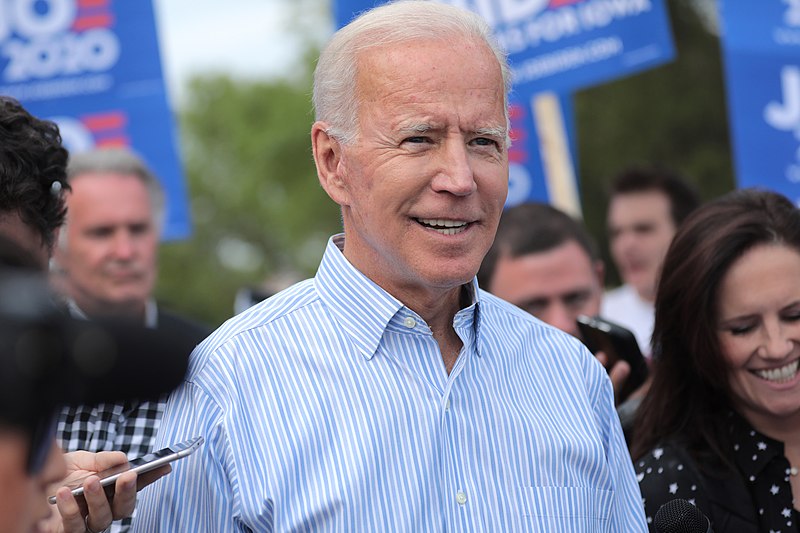
During his early years in the Senate, Biden was instrumental in some of the most significant crime bills in recent U.S. history. The Comprehensive Crime Control Act of 1984 established mandatory minimum sentences for drug offenses; the 1986 Anti-Drug Abuse Act, introduced much harsher sentences for possession of crack than for powder cocaine; and the Anti-Drug Abuse Act of 1988, again stiffened prison sentences for drug possession, enhanced penalties for transporting drugs, and established the ONDCP. In 1989, Senator Biden went on national television to criticize President George H.W. Bush’s plan to escalate the War on Drugs, saying it didn’t go far enough; “Quite frankly, the president’s plan is not tough enough, bold enough, or imaginative enough to meet the crisis at hand”. He called for harsher punishments for drug dealers and to “hold every drug user accountable”. In the address he also called for greater spending on drug awareness education, to “do more, and now”.
By the early 1990s, as violent drug related crime continued to rise, in a speech on the Senate floor, Biden wanted to “Lock the S.O.B.s up.” In 1994 Biden boasted, “The truth is every major crime bill since 1976 that’s come out of this Congress, every minor crime bill, has had the name of the Democratic senator from the State of Delaware: Joe Biden [on it]”. The Violent Crime Control and Law Enforcement Act of 1994, the largest crime bill in U.S. history, was also known as the Biden Crime Law. The laws Biden helped shape in the 1980s and 1990s, and similar legislation in states across the nation, marked a trend towards stricter sentencing laws for drugs and violent offenses, resulting in mass incarceration that overwhelmed America’s black communities.
This is not lost on the Trump 2020 campaign. A video ad reminded (Black) voters “Joe Biden’s policies destroyed millions of black lives” and a tweet by @AmericaFirstPAC claimed “Biden was the chief architect of mass incarceration and the War on Drugs”.
Biden’s positioning has often reflected the politics of the time. Democrats and Republicans have battled to prove that they are the toughest on crime. However as the numbers using illicit drugs keep rising and the collateral consequences of disproportionately incarcerating poor people of colour is still devastating lives, Biden has done a volte-face on his ’80s and ’90s stance. The Obama administration, faced with a growing opioids crisis, worked to reshape how America approached the drug problem by pushing for public health response rather than the “tough on crime” approach taken by previous administrations dealing with drug epidemics; heroin (Nixon, 1960s) and crack cocaine (Reagan, Bush, Clinton, 1980s & 90s). Biden backtracked on tougher prison sentences for crack cocaine that he had shaped and he’s acknowledged his previous ‘mistakes’, saying in 2008 “I am part of the problem that I have been trying to solve since then,…because I think the [crack-powder] disparity is way out of line.” During his 2020 run for office he has admitted “I haven’t always been right,” and speaking to criminal justice issues he acknowledged that, “I know we haven’t always gotten things right, but I’ve always tried.” A point he reiterated in the final presidential debate on 22 Oct 2020, repeating that previous laws had been a “mistake” and stating, “No one should be going to jail because they have a drug problem.” Biden’s 2020 campaign website states if elected he will “Reform the criminal justice system so that no one is incarcerated for drug use alone” and “Decriminalize the use of cannabis and automatically expunge all prior cannabis use convictions”, although he does still appear to fall-short of backing full legalization.
Biden’s choice of running-mate, Kamala Harris, has had a similar rethink on her position. The former Californian Attorney General who has a history of aggressive prosecution of marijuana cases is now a vocal supporter of reform. In 2018, she co-sponsored Sen. Cory Booker’s Marijuana Justice Act that would remove cannabis from the Controlled Substances Act and expunge existing cannabis-related criminal records, and was the MORE Act’s lead Senate sponsor. In the Vice Presidential debate on October 8, 2020, Harris vowed that marijuana would be decriminalized at a federal level in the United States under a Biden administration, a move that saw the shares of U.S.-listed major cannabis producers surge the following day. Harris’ stance in fact goes even further and she now appears to support full legalization. In her book, The Truths We Tell (2019) she writes “We need to legalize marijuana and regulate it. And we need to expunge nonviolent marijuana-related offenses from the records of the millions of people who have been arrested and incarcerated so they can get on with their lives.”
Biden’s change of heart may also be down to his own personal experiences. In 1999, his daughter Ashley was arrested in New Orleans for possession of marijuana while attending Tulane University but was not prosecuted, while his son Hunter has had a well-documented drug problem. In that first, already infamous presidential debate, he was provoked by Trump on Hunter Biden’s troubled history he responded “My son, like a lot of people, like lot of people you know at home, had a drug problem. He’s fixed it, he’s worked on it. And I’m proud of him. I’m proud of my son.” With so many American lives touched by the devastating consequences of illicit drug use this message of compassion and care, in the face of stigmatization and scorn, and Biden’s about-face turn may play well with American voters on November 3rd.
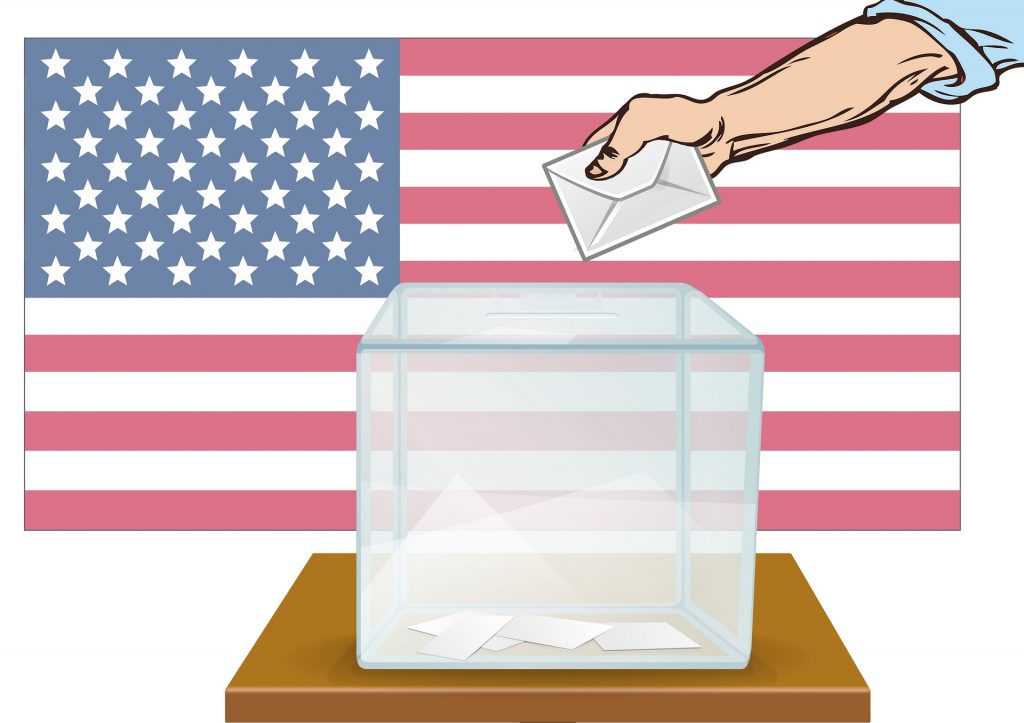
Conclusion
Already amidst an overdose crisis of historic magnitude Trump’s administration over the past 4 years has failed to make any significant steps to address the issue and shows little appetite to take the lead on cannabis policy reform. The COVID -19 crisis has only served to highlight failures in a fundamentally broken system, on top of which future U.S. drug policy will have to deal with the legacy effects of the pandemic. While both candidates have over the years shown significant reversals on drug issues, the Trump campaign does not signal and appetite for any specific, further change of direction if re-elected. While a future with Joe Biden as President may offer a more progressive approach to drug policy the repercussions of the events of 2020 may make substantial change more challenging and protracted.
*GDPO Project Officer
